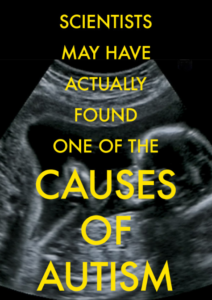When the IL-17a molecule was artificially blocked (preventing IL-17a-induced inflammatory responses), the pups from both sets of mice were born with neuro-typical behaviors. Yet, when everything was left to progress without additional human intervention, the pups born from mothers in the first group went on to develop an autism-like neurodevelopmental condition, which affected social and repetitive behaviors.
To confirm that this was due to the group’s unique microflora, the researchers performed a fecal transplant on mice from the second group using the feces of the mice from the first group. The idea here is to change the microflora of the second group so that it more closely resembles that of the first. And, as expected, the pups from the second group went on to develop an autism-like neurodevelopmental condition.
These are preliminary studies and may not translate to human pregnancies, but it does offer an interesting avenue to explore as far as autism research is concerned and provides strong evidence that the health of the mother’s gut plays at least some role in the onset of neurodevelopmental conditions.
The next step, Lukens said, is to see if they can detect similar correlations in humans and work out what it is in the mother’s microbiome that relates to autism development. There are also several other molecules to examine. As Lukens added, IL-17a may be just one piece in a much larger puzzle.
Continue Reading:




